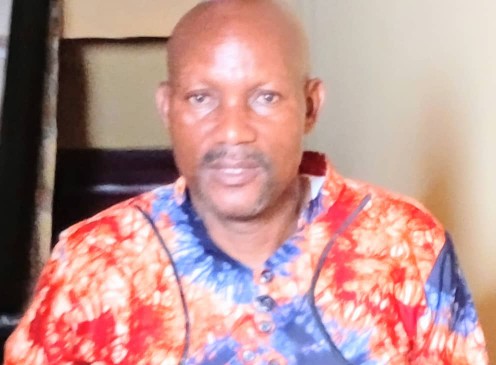An Edo State High Court, sitting in Benin, on Friday, discharged and acquitted Dr Omowumi Olabode Steven Ekundayo of allegation of rape.
Ekundayo, a lecturer with the University of Benin (UniBen) was on trial, having been alleged to have raped Miss Anita Adesuwa Efosa, a 21-year-old 400 Level student of the same institution, on 15 October, 2021.
The lecturer, popularly known as “Dr Bode Steve Ekundayo”, had been successfully assessed for the rank of associate professorship in the Department of English and Literature in the university before his ordeal.
Dr Ekundayo was accused of raping Anita Efosa in his office at the ‘Faculty Complex’ in broad daylight on the said day.
The scandal went viral and consequently, Ekundayo was issued a query and placed on interdiction, pending the investigation of the case by the Police and final determination by the court.
The university lecturer was arrested, detained for several weeks and arraigned for alleged rape, but was later granted bail on stringent conditions.
However, after over three years of legal battle, the Benin High Court discharged and acquitted Ekundayo, citing lack of substantial proofs and evidence against the accused.
Ruling on the Suit marked B/CD/8CV/22, Justice (Mrs.) Mary Itsueli, stated that the prosecution team failed completely to prove its case against the accused, Dr Ekundayo, beyond all reasonable doubts.
The trial judge asserted that, even if anyone was to believe the claims of the alleged victim in their face value, there was no substantial required proofs or evidence whatsoever to establish sexual intercourse or rape.
Justice Itsueli summarised the outcome of the examinations and cross-examinations of all the witnesses, including Principal Witness 1, Miss Efosa, the alleged victim.
She then upheld the no-case submission filed by the defense counsel and former Attorney General and Commissioner for Justice, Edo State, Dr. Osagie Obayuwana.
Justice Itsueli maintained that the evidence of the PW 1 (the nominal complainant) was not corroborated with the submissions of the other five prosecution witnesses.
The judge also maintained that the prosecution team further failed to tender the University Health Centre Medical Test Report as exhibit to the court during the trial because the result and findings therein obviously vitiated and negated their claims.
In addition, the report from Vivian Centre, which was conducted a day after the alleged incident and tendered as evidence, failed to scientifically show the evidence or proofs of rape.
Besides, the Medical Doctor of Vivian Centre who presented the report admitted before the court that there was no way sexual intercourse or rape could be established after 24 hours. He said he based his findings predominantly on the oral claims of the alleged victims.
Justice Itsueli held that the prosecution team could not establish the three main ingredients of rape, including penetration, sexual intercourse and no consent.
She said the penetration must be linked with the defendant and telltale signs of rape have to be shown in the medical report and the scene of alleged crime, adding that these were not established in any way.
Justice Itsueli also relied on an investigation by the Police and Investigation Officer (IPO) who examined both Dr Ekundayo and Miss Efosa physically and visited the scene of alleged rape.
The Police Report stated that there was no bruises on their bodies, no torn clothes. It was also stated that the office of the defendant said to have been broken into to rescue the alleged victim was intact.
The trial judge therefore concluded that the whole thing was a clear set up, as contained in the Police Report.
Citing plethora of legal authorities, Justice Mary Itsueli of the Benin High Court averred that “the prosecution case is bereft of evidence.
“In a criminal case, the claimant is required to prove his/her case beyond all reasonable doubts. I found no reason to call the defendant to enter the dock for his defense. The No-Case Submission of the defense counsel is hereby upheld.
“The case is hereby dismissed for lack of evidence and the accused is discharged and acquitted.”





























